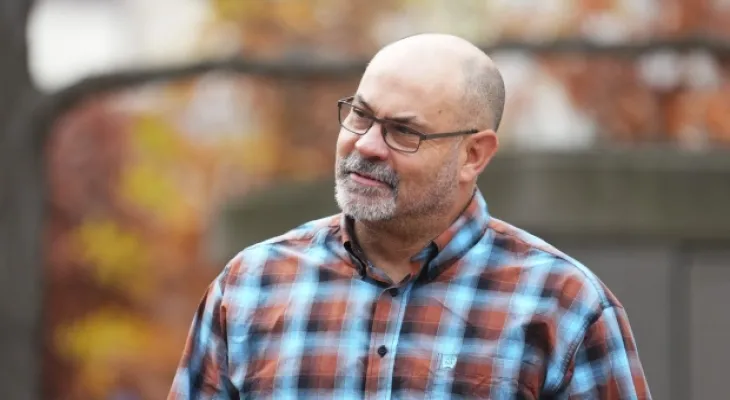Search here
Newspaper
Search here

Arab Canada News
News

Published: February 23, 2024
One of the main organizers of the "Freedom Convoy" filed a lawsuit against the federal government for using the Emergencies Act to freeze his bank accounts, arguing that it violates his Charter rights to protest against the coronavirus mandates.
Chris Barber, who owns a trucking company in southwestern Saskatchewan, filed a statement of claim last week in the Kings Bench Court in Saskatoon, alleging that the unprecedented step taken by the federal government to invoke the law constitutes an abuse of power.
The claim stated that "this disruption deprived (Barber and his wife) of the ability to conduct basic financial transactions and live a normal life, causing severe distress, hardship, embarrassment, exclusion from modern society, and damage to personal and business relationships." His wife and the trucking company are also named as plaintiffs.
None of these claims have been proven in court.
The federal government has not filed a statement of defence. A company spokesperson said in an email, “We will review the claims to determine next steps.”
Barber and Tamara Lich, from Medicine Hat, Alta., led protests against COVID-19 vaccine mandates that resulted in the shutdown of downtown Ottawa and major border crossings in 2022.
Both are facing charges of mischief and other offenses. The case has been in Ottawa courts for months.
Barber's lawsuit comes weeks after Federal Court Judge Richard Mosley ruled that it was unreasonable for the federal government to use the Emergencies Act to suppress protests.
The judge said the use of the law violated constitutional rights. He specifically pointed to the federal government's failure to require “some objective criteria” before freezing bank accounts, concluding that it breaches the Charter's prohibition against unreasonable search or seizure.
The government said it will appeal the decision to the Supreme Court of Canada.
Many protesters in large trucks entered the Canadian capital in January 2022. For nearly three weeks, residents endured honking big rigs, diesel fumes, and even a hot tub and bouncy castle.
The trucks also blocked key border crossings, including roads leading to the United States in Windsor, Ontario, and Coutts, Alta.
On February 14, 2022, Ottawa activated the Emergencies Act. It allowed temporary measures, including regulating public assemblies and banning support for participants. Banks were also directed to freeze participants’ assets.
This marked the first time the law had been used since it replaced the War Measures Act in 1988.
The statement of claim says all of Barber's personal and business bank accounts were frozen the next day without warning, adding that he was unable to withdraw cash, deposit money, or use credit cards, and automatic payments were blocked.
The document says one account was frozen for nine days and another was blocked until the following month.
The lawsuit explained that Barber could not access money to cover daily living expenses such as food, fuel, or medicine. He also “suffered and felt fear and anxiety due to the anticipated loss of income,” as his salary, wages, and business revenue payments went into the frozen accounts, the report stated.
The document indicated this led to missed payments and defaults on loans and credit card bills, damaging his credit rating, and the lawsuit claims Barber continues to be refused business financing requests and has been told his bank accounts "will remain frozen indefinitely.”
The federal government is alleged to have frozen the bank accounts “for an improper purpose which was to deter and punish” protesters for exercising their fundamental Charter rights.
A separate but similar statement of claim was also filed against the federal government in Saskatoon court by Laurely Mizo.
The lawsuit alleges Mizo’s Charter rights were violated when his bank accounts were frozen. The document says Mizo, who lives in a rural municipality south of Saskatoon, previously worked as a branch manager for a financial services company.
The invocation of the Emergencies Act led to the creation of a federal review committee to review the government’s decision. Last year, Commissioner Paul Rouleau concluded that the federal government was justified in using the legislation.
The proposed class action lawsuit against the convoy organizers on behalf of Ottawa residents, workers, and business owners is still ongoing in court.
Comments